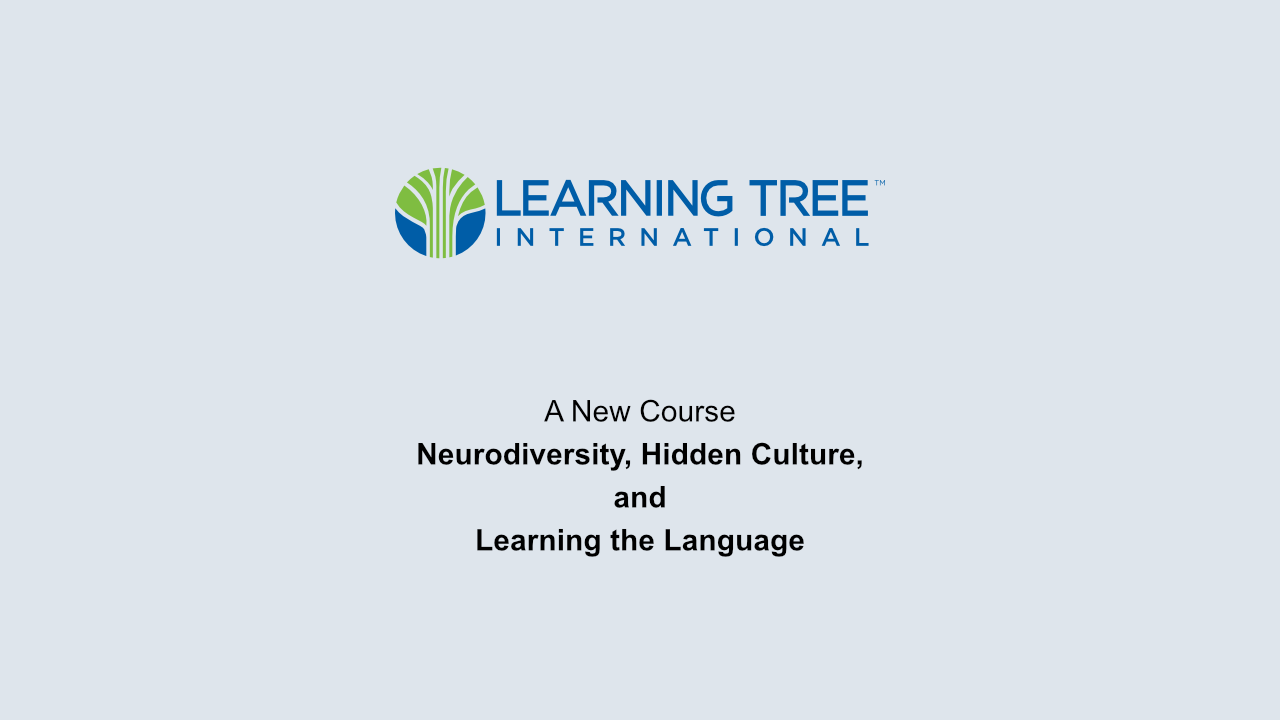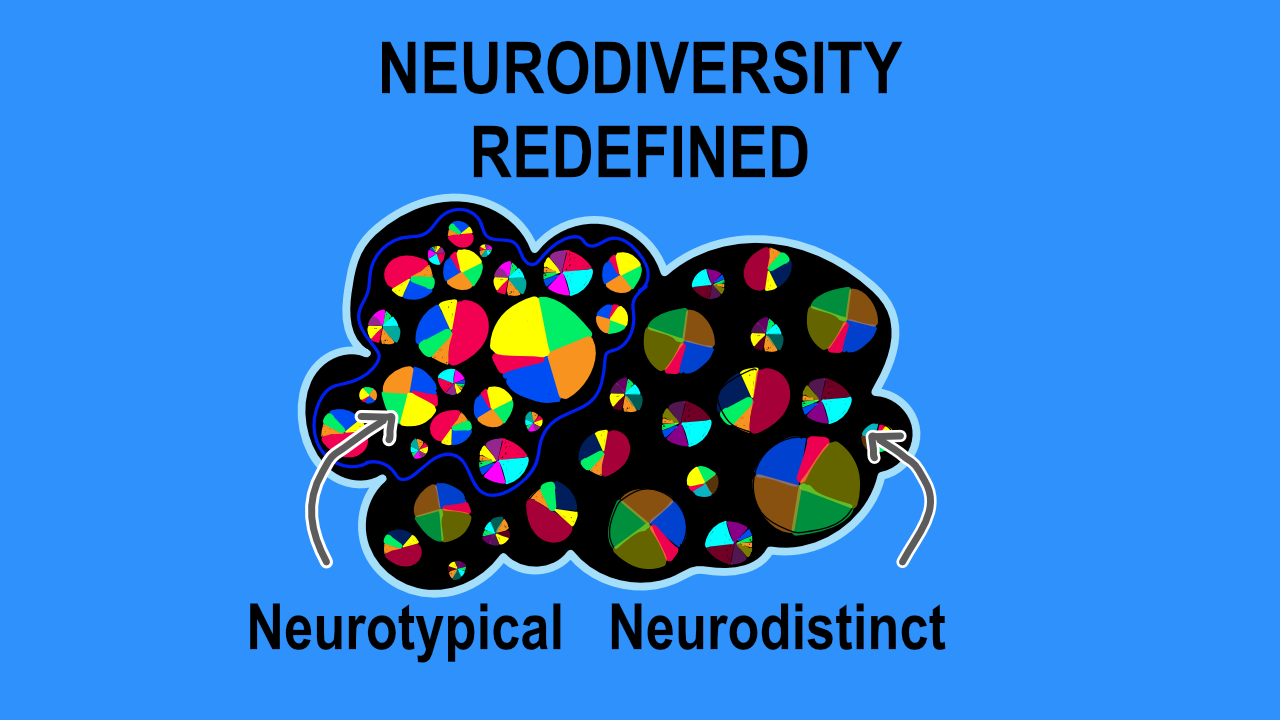Neurodiversity, Hidden Culture, and Learning the Language Training

Fate works in odd and mysterious ways. For a while I had been frustrated about having no clue about the impact my efforts in the adult autism world was having. Then I got an email which lead to a discussion. The outcome was Learning Tree is letting me build a neurodiversity course bases on my concepts and taking it mainstream into the tech and tech management space.
Course Summary on the Learning Tree site
The course introduces neurodiversity and recognizes that among the neurodistinct it is not just autism. But the focus of the course is on the stereotypical tech geek that most autism at work programs focus on. I go far beyond "those people are this way" and into ways the autistic mind perceives, process, and thinks. Building on the foundation of understanding students are also give simple easy to implement tips which will improve their communication with everyone, not just the autistic.
While aimed at the tech department and tech management it is also a great way to truly understa...
Neuro Cloud & Neurodistinct, Neurodiversity Refined

Australian social scientist Judy Singer coined the word "neurodiversity" in her theses paper. It was a great advance in viewing the relationship of an individual with certain traits or group of traits to the to the larger group, the maker of societal norms. Her concept uses terminology which, while appropriate in the academic setting of her work, is hard to approach for the average person, confusing in how the items fits in the whole, does not align with how we speak of other human capability challenges, and uses a word that make groups of people sound bad. Judy's concept has created a movement of seeing people with distinctly different perceiving, processing, and thinking patterns as normal human variation, not as broken human needing to be fixed to be "normal".
In science, concept mature and develop as others add to the idea. This has happened with neurodiversity as it has moved from academic discussion to real life identities. As with much science, the academic body of knowledge te...